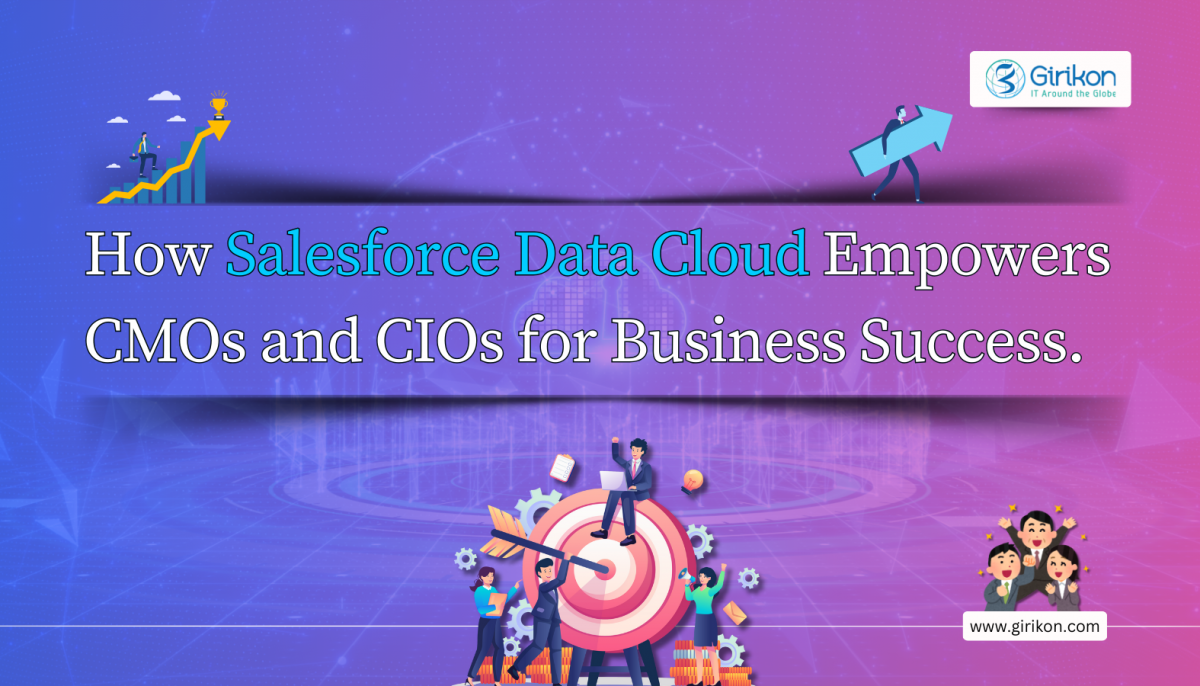Our Blogs
The business landscape has become extremely competitive in today’s digital era. Apart from the market competition, evolving customer needs have pushed organizations to prepare for the future. To sustain themselves, organizations are leveraging technology solutions like a CRM (Customer Relationship Management) system to stay ahead of the race. As a cloud-based CRM system, Salesforce continues to be a preferred choice of customers looking to efficiently manage their customer relationship while ensuring operational efficiency by streamlining business processes.

Salesforce with its wide array of features, functionalities and cloud solutions can be leveraged by organizations to resolve their unique business problems. However, sales reps are always in a dilemma as to which Salesforce product to opt for especially between sales cloud and customer service cloud as both of them have objects like contacts, leads, opportunities, cases, etc. in common.
However, the basic difference lies in their functionality, and organizations should make their choice basis their specific business needs. Let’s take a quick look at the features offered by each one of them:
What is Sales Cloud?
This Salesforce product is designed to manage, automate, and analyze the sales processes of an organization thereby increasing the efficiency of the sales team. Sales cloud benefits both sales reps, as well as sales managers by helping them accomplish their tasks with efficiency. Since, the Sales cloud functionality can be leveraged to automate customer communication and other activities such as call logging, sending of emails; record-keeping, etc. sales reps are left with sufficient time for nurturing of leads and closing more deals. Sales managers on the other hand can assess the performance of sales reps while developing a strategy that aligns the processes of sales and marketing teams.
Some of the key Features Offered by Sales Cloud
- Contact & Lead Management: This feature helps sales reps to manage leads, contacts, campaigns, and sales frequency to close more deals.
- Mobile optimization: This means integration with mobile, which in turn ensures more flexibility. Sales reps can now have easy access to workflows; manage leads easily, clip dashboard, track reports, etc. all at your fingertips.
- Reports & Dashboards: Organizations can well manage their business by having access to regular and detailed reports regarding organizational growth, and progress. They can also recognize the insufficiencies to upgrade processes that require the most attention.
- Work Process Approval: The Sales cloud interface allows organizations to plan their business in a better way as everything including sales, expenses, and discounts could be availed at one place.
What is Service Cloud?
It is an important business tool that positively impacts customer retention rates as retaining an existing customer is cheaper than gaining a new one. The cloud platform provides integration with numerous communication channels that are present within the service cloud UI, which helps sales reps to serve their customers quicker and better. The knowledge base created acts as a useful source of knowledge, which can help service agents to reduce their response time and train agents quickly. Service agents can provide a quick resolution to customer issues as the cloud platform offers service process automation.
Customer service managers can gauge the performance of service agents by accessing the reports on customer satisfaction. This gives them a fair idea of the training and Salesforce support they would have to provide the agents.
Some of the key Features Offered by Service Cloud
- Service Console: Experts handle and manage organizational tasks to help customers better respond to their services.
- Chat service: Live Chat is automated, which assists customers looking for solutions.
- Customer service: This helps in processing customer queries via social media without looking for other websites.
- Knowledge Base: The knowledge base created can help service reps to better understand customer queries and provide a quick resolution to them.
- Email to Case: his feature helps in automating email responses w.r.t case submissions depending on the characteristics of the record.
Sales Cloud vs Service Cloud: What Should You Opt For?
Although Service Cloud has a lot in common with Sales Cloud, it does not mean that both the products can be interchanged. Since sales cloud offers features that help in turning a lead into an account, it is recommended for sales-centric organizations. On the other hand, the service cloud is recommended to customer service-centric organizations as it provides features for customer service management and improvement for agent productivity. For organizations having both sales and service requirements, a Sales + Service package is recommended.
Final Words:
These are some of the basic differences between the two cloud platforms that can help you decide which cloud platform to opt for as per your business need. It is prudent to get in touch with a reliable Salesforce partner who can help you with the right solution for your business.

 +1-480-382-1320
+1-480-382-1320 +44-7428758945
+44-7428758945 +61-1300-332-888
+61-1300-332-888 +91 9811400594
+91 9811400594


















